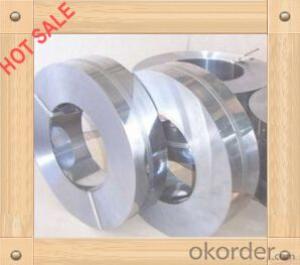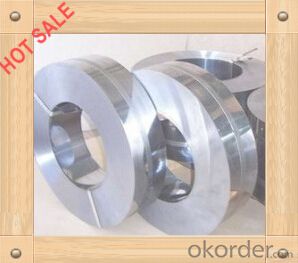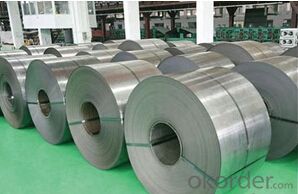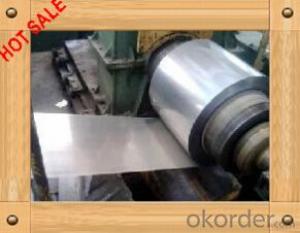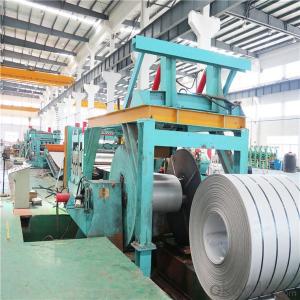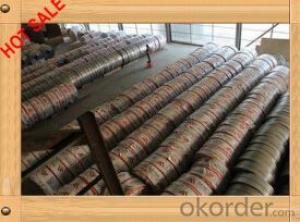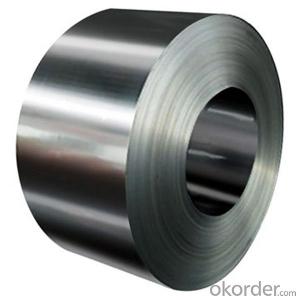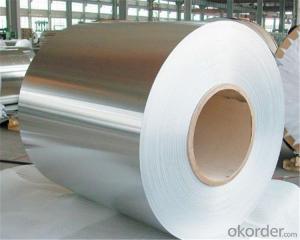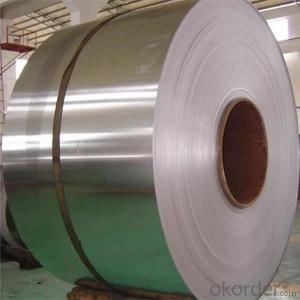201/202/301/304 Grade Stainles Steel Strip /Coil with 2b/Ba Surface
- Loading Port:
- Shanghai
- Payment Terms:
- TT OR LC
- Min Order Qty:
- 25 m.t.
- Supply Capability:
- 10000 m.t./month
OKorder Service Pledge
OKorder Financial Service
You Might Also Like
Basic Info.
Model NO.:201/202/301/304
Surface Treatment:2b, Ba, Hairline, No.4, 8k, Mirror Finish etc.
Certification:ISO, SGS, BV
Technique:Cold Rolled
Standard:ASTM, JIS, GB, AISI, DIN, BS
Application:Pipe/Tube Making, Building , Kitchen Sinks/C
Edge:Mill / Slit Edge
Stock:Stock
Steel Grade:201, 202, 301, 302, 304, 304L, 316,316L
Grade:201, 202, 301, 302, 304, 304L, 316,316L
Width:20mm-1250 Mm
Thickness:0.16-3.0mm
Surface:2b, Ba, Hairline, No.4, 8k, Mirror Finish etc.
Quantity:as Request
Delivery Time:1-14 Days
Payment Term:FOB/CIF/CFR/EXW
Export Markets:Global
Additional Info.
Trademark:JH
Packing:Woven, Wooden Box
Standard:prime
HS Code:72209000
Production Capacity:800000 Tons/Year
Product Description
3201/202/301/304 GRADE Stainles Steel Strip /coil with 2B/BA surface
stainless steel strip
stainless stee coil
steel coil
stee strip
| Material GRADE | 201, 202, 301, 304, 304L, 316, 316L |
| Standard | ASME, ASTM, EN, BS, GB, DIN, JIS, etc |
| Technique | Hot rolled / cold rolled |
| Raw material source | JHSCO or as your request |
| Width | 10mm-1250 mm |
| Thickness | 0.16mm-3.0mm |
| Quantity | as your request |
| Surface | 2B, BA, 8K, No. 4 No.1,8K, Mirror finish etc. |
| Packaging | Standard export sea-worthy packing |
| Delivery time | 1-15days |
| Supply ability | S.S HR COIL= 1000 000 TONS/ year ,S.S CR COIL= 800 000 TONS/ year,s.s pipe=200 000 TONS/ year |
| Payment terms | L/C, T/T |
| Application range | Pipe/tube making,building material,kitchen sinks/cutlery,baths,elevators,automotive application,industrial application,hardware-tools etc. |
- Q: Where can you buy a steel polearm in a shop or if someone has a file in Scania than can you sell me one ill buy it for 150k my account is tonypark500
- Steel polearm was from the Aran Welcome Event, which ended a few weeks ago. Now is the worst time to buy one, since the craze just ended and steel polearms are now heavily in demand (sadly). Your best bet is the free market, but they will cost you a few mil.
- Q: What are the different types of surface treatments for steel coils?
- There are several different types of surface treatments available for steel coils, each designed to enhance the appearance, protect against corrosion, and improve the overall durability of the steel. Some of the commonly used surface treatments for steel coils include: 1. Hot-dip galvanizing: This process involves immersing the steel coils in a bath of molten zinc, which forms a protective layer on the surface. Hot-dip galvanizing provides excellent corrosion resistance and can withstand harsh environments. 2. Electro-galvanizing: In this method, a thin layer of zinc is electroplated onto the surface of the steel coils. Electro-galvanizing offers good corrosion resistance and improves the aesthetics of the steel. 3. Organic coating: Steel coils can be coated with organic materials such as paints, lacquers, or polymer films. These coatings provide protection against corrosion, abrasion, and UV radiation, while also offering a wide range of color options. 4. Phosphating: Phosphating is a chemical treatment that converts the steel surface into a layer of phosphate crystals. This treatment enhances the adhesion of subsequent coatings and improves the corrosion resistance of the steel. 5. Chromating: Also known as passivation, chromating involves the application of a chromate conversion coating onto the steel surface. This treatment enhances the corrosion resistance and provides a decorative finish. 6. Oiling: Oiling is a simple surface treatment that involves applying a thin layer of oil onto the steel coils. This treatment helps prevent corrosion during storage and transportation and can be easily removed before further processing. 7. Pickling: Pickling is a process where the steel coils are immersed in an acid solution to remove impurities and scale from the surface. This treatment improves the surface finish and prepares the steel for subsequent processing or coatings. 8. Tin plating: Steel coils can be coated with a layer of tin through electroplating. Tin plating provides excellent corrosion resistance, solderability, and aesthetic appeal. These are just a few of the many surface treatments available for steel coils. The choice of treatment depends on the specific requirements of the application, including the desired appearance, corrosion resistance, and environmental conditions the steel will be exposed to.
- Q: What are the different types of steel coil edge conditioning methods?
- There are several different types of steel coil edge conditioning methods, including slitting, trimming, chamfering, deburring, and edge rolling. Slitting involves cutting the coil into narrower strips, while trimming removes any excess material from the edges. Chamfering is the process of creating a beveled edge, while deburring removes any burrs or sharp edges. Edge rolling is another method used to smooth and shape the edges of the steel coil.
- Q: What are the different types of welding methods used for steel coils?
- There are several different types of welding methods commonly used for steel coils, including spot welding, seam welding, and flash butt welding. Spot welding involves applying heat and pressure to two overlapping pieces of metal to create a strong bond. Seam welding is similar to spot welding but is used for continuous welds along the length of the coil. Flash butt welding involves using an electric current to create a heat source between two ends of the coil, which are then pressed together to form a solid weld. These methods allow for efficient and effective joining of steel coils in various industrial applications.
- Q: How are steel coils used in the manufacturing of steel drums?
- Steel coils are used in the manufacturing of steel drums as they are cut into the desired size and shape to form the body of the drum. The coils are unrolled and bent into a cylindrical shape, which is then welded together to create a seamless drum. This process allows for efficient and cost-effective production of steel drums, ensuring durability and strength in the final product.
- Q: How are steel coils tested for flatness and straightness?
- Steel coils are tested for flatness and straightness using various methods such as visual inspection, measurement tools like straightedges or laser devices, and specialized equipment like leveling machines. These tests ensure that the steel coils meet the required standards and are free from any deformities or deviations in their flatness and straightness.
- Q: How are steel coils used in the production of metal shelving?
- Steel coils play a vital role in manufacturing metal shelving. Made from high-quality steel, these coils go through a series of manufacturing processes to transform them into sturdy and long-lasting shelves. To start, the steel coils are unwound and flattened to the desired thickness using a machine known as a slitter. This step ensures that the coils are uniform in size and thickness, which is crucial for producing consistent and dependable shelves. Next, the flattened steel is cut into specific lengths using a shear. These pieces are then sent to a press brake, where they are bent and shaped into the desired design for the shelves. The press brake applies pressure to the metal, allowing it to be folded or formed into various angles and shapes, such as shelves with raised edges or adjustable brackets. Once the shelves have been formed, they undergo a welding process to securely fuse any joints or seams. This welding process ensures the shelves' structural integrity, enabling them to support heavy loads and maintain their shape over time. After welding, the shelves go through surface treatment to improve their appearance and protect them from corrosion. This may involve cleaning, sandblasting, and painting. The surface treatment not only enhances the shelves' aesthetic appeal but also extends their lifespan by preventing rust and other forms of deterioration. Lastly, the shelves undergo a quality control inspection to ensure they meet the necessary standards. This involves checking for defects, measuring dimensions, and conducting load-bearing tests to ensure the shelves can withstand the intended weight capacity. In summary, steel coils are integral to the production of metal shelving. Through processes like unwinding, flattening, cutting, bending, welding, treating, and inspecting, these coils are transformed into strong, durable, and visually pleasing shelves suitable for various settings such as warehouses, retail stores, and homes.
- Q: i want a good modern carbon steel (not stainless) knife. trying to keep it under 50$ also nothing to gruesome just a small pocket knife. thank you
- Well, okorder /... They did make other folders in M2 steel, but the thing is those are out of production and the cost is very high. Spyderco made M4 steel folder knives, and so did Benchmade. Although,both are outside of 50$ budget. I guess Opinels are best option.
- Q: I know copper pots are supposed to be really good for cooking with, and I have been looking around online. One thing I don't want to do, however, is send them in to be re-lined with tin. So I was wondering if stainless steel lined copper pots work as well as the traditional tin lined ones, or if those make the copper just for looks.
- Stainless steel is durable and does not disolve and make things taste funny. Stainless steel is not a good conductor of heat, so it has hot and cold spots. Copper is very good conductor. They noe bond copper to stainless steel to get the best features of each. Some pots just have a very thin copper plating to fool you. A good pot will be heavier, It is really hard to tell from looking.if it is plating or a bonded layer of copper. the thicker the better
- Q: How are steel coils used in the manufacturing of doors and windows?
- Steel coils are used in the manufacturing of doors and windows as they provide a strong and durable material for constructing the frames and components. The coils are first processed and cut into the desired shape, then formed and welded together to create the frames. This ensures stability and support, allowing the doors and windows to withstand various weather conditions and provide long-lasting performance.
Send your message to us
201/202/301/304 Grade Stainles Steel Strip /Coil with 2b/Ba Surface
- Loading Port:
- Shanghai
- Payment Terms:
- TT OR LC
- Min Order Qty:
- 25 m.t.
- Supply Capability:
- 10000 m.t./month
OKorder Service Pledge
OKorder Financial Service
Similar products
Hot products
Hot Searches
Related keywords
